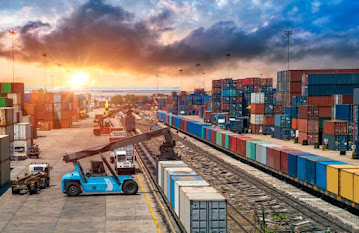Navigating the Skies: An Introduction to Cargo Revenue Management
In the bustling world of air cargo, where efficiency and profitability are paramount, Cargo Revenue Management (CRM) emerges as a pivotal strategy for airlines and logistics companies. This intricate process involves the optimization of cargo space to maximize revenue, ensuring that every inch of available space generates the highest possible yield. Revenue Technology Services (RTS) has been at the forefront of providing insights and solutions in this domain, and this blog post aims to shed light on the principles and practices that underpin Cargo Revenue Management.
At its core, CRM is about making informed decisions regarding the allocation of cargo space. It involves analyzing market trends, understanding customer behavior, and predicting demand to set prices that reflect the value of the cargo space. This is where the expertise of RTS comes into play, offering advanced analytics and revenue management systems that empower businesses to make data-driven decisions.
One of the fundamental principles of CRM is the concept of yield management. This involves segmenting the cargo market into different classes, each with its own pricing structure. By doing so, airlines can cater to a wide range of customer needs while ensuring that high-value goods are prioritized and charged accordingly. RTS provides the tools to dynamically adjust these prices based on real-time data, ensuring that the cargo space is always sold at the optimal price.
Another key practice in CRM is capacity management. Airlines must constantly balance the demand for cargo space with the available supply. This requires a deep understanding of flight schedules, aircraft types, and the physical constraints of cargo holds. RTS's technology assists in forecasting demand and optimizing load plans, ensuring that every flight is as full as possible without compromising on safety or operational efficiency.
The role of customer relationship management (CRM) in cargo revenue management cannot be overstated. Building strong relationships with cargo clients can lead to repeat business and higher willingness to pay for premium services. RTS's solutions help airlines track customer interactions and preferences, allowing for personalized service offerings that can command a premium in the market.
In the digital age, CRM also encompasses the use of online platforms and mobile applications to streamline booking processes and provide real-time information to customers. RTS's technology enables airlines to offer user-friendly interfaces that enhance the customer experience, from booking to tracking shipments. This not only improves customer satisfaction but also increases the likelihood of higher yields through ancillary services and value-added offerings.Moreover, CRM involves the strategic use of inventory control. Airlines must decide when to release space for booking and when to close it to protect revenue. This is a delicate balance, as overbooking can lead to cargo being left behind, while underbooking can result in empty space. RTS's systems provide the analytics needed to make these decisions, taking into account factors such as seasonality, competition, and market conditions.
Finally, CRM is not a one-size-fits-all approach. It requires continuous learning and adaptation to the ever-changing dynamics of the air cargo industry. RTS's commitment to innovation ensures that its clients have access to the latest tools and methodologies in CRM, allowing them to stay ahead of the curve.
In conclusion, Cargo Revenue Management is a complex yet essential aspect of the air cargo industry. It requires a deep understanding of market dynamics, customer behavior, and operational constraints. Revenue Technology Services plays a crucial role in providing the technology and expertise needed to navigate these challenges. By embracing CRM principles and practices, airlines and logistics companies can ensure that their cargo operations are not only profitable but also responsive to the needs of their customers in an increasingly competitive global market.




.jpg)
Comments
Post a Comment